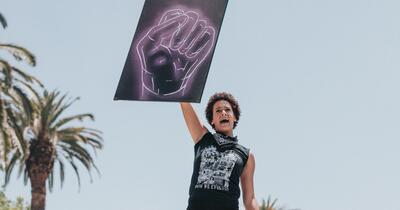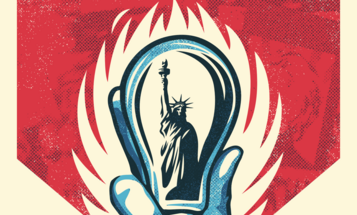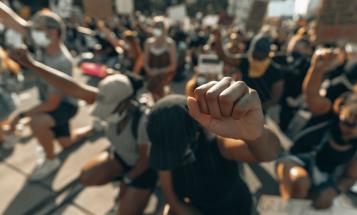
It’s Time to Center Black Women in the Fight for an Equitable Democracy and Economy
Since this country’s founding, Black and brown women have been America’s safety net. Both at home and abroad, our underpaid and unpaid labor are the building blocks that allow America to thrive.

In 1945, more than 900 cigar factory workers—a majority of them Gullah Geechee women—walked off the job at American Tobacco in Charleston, S.C. They were fighting for back pay, a 25-cent pay increase, non-discrimination hiring clauses and medical benefits. The striking workers sang, “We will overcome, and we will win our rights someday“—a line from the civil rights song “We Shall Overcome.” They did this while they picketed, marking the first time the song was used in the labor movement.
A South Carolina organizer, Zilphia Horton, brought the song to farm workers in Montana, where it eventually got the attention of folk singer Pete Seeger and became the anthem of the labor movement across the country. “We Shall Overcome” was sung by activists at the March on Washington, quoted by President Lyndon Johnson in the fight to pass the Civil Rights Act of 1964, referenced by Martin Luther King, Jr., and has been used in labor movements and civil rights struggles across the globe, from Northern Ireland to South Africa.
Black women have stood at the vanguard across social movements and efforts to create a just and inclusive democracy and economy. Since this country’s founding, Black and brown women have been America’s safety net. Both at home and abroad, our underpaid and unpaid labor are the building blocks that allow America to thrive. We are the engines of the movements that drive change, doing the unglamorous and often overlooked organizing work that is necessary to drive real change. We do this work out of necessity, driven by survival.
[...]




